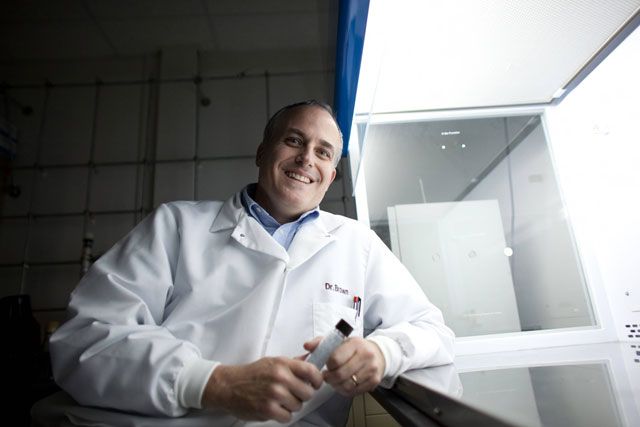A structure, Muhannad Suleiman likes to observe, is only as strong as the soil on which it stands. A bridge or skyscraper can be built with the best materials and construction techniques, but it won't withstand earthquakes or other natural hazards if it rests on weak or loose soil.
Suleiman, an associate professor of civil and environmental engineering, is proposing to provide structures with a firmer, more environmentally friendly soil foundation by enlisting the aid of an enzyme found in deep sea sponges.
The enzyme, called silicatein, has shown promise in precipitating the formation of flexible calcite (calcium carbonate) in soils. The calcite acts to strengthen soil by causing its tiny particles to cement together.
Suleiman and two other faculty members—Bryan Berger, associate professor of chemical and biomolecular engineering, and Derick Brown, associate professor of civil and environmental engineering—recently received an 18-month grant from the National Science Foundation (NSF) to explore silicatein's potential as a soil strengthening agent.
The latest award is Suleiman's fifth from NSF in eight years. The winner of the 2014 Shamsher Prakash Annual Prize for Excellence in Teaching of Geotechnical Engineering, Suleiman is also working with a biologist in Qatar to use bacteria to improve soil's performance under sand storm conditions. Brown and Panos Diplas, department chair of civil and environmental engineering, are also collaborating on the project, which is funded by the Qatar National Research Fund (QNRF).
For more, check out the article in the Lehigh University News Center.



